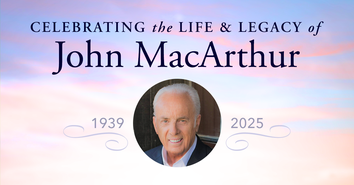Hometown Legend Filmmakers Won't Be Labeled
Director and producer want their film to succeed in the mainstream marketplace.
Updated Jan 25, 2002

Film Director James Anderson's father is head of the Christian Booksellers Association. Film Producer Dallas Jenkins' father is the co-author of the wildly successful Left Behind series and head of the Christian Writers Guild. Both the elder Anderson and elder Jenkins have been fixtures in the Christian world, but their offspring have different ideas. As first-time filmmakers, they fully intend to make their art within the mainstream entertainment industry, so far refusing to be labeled "Christian filmmakers" or to make "Christian films."
Not because they're ashamed of their faith, mind you, or their close association with the Creator of the universe, but because they seem to have figured out that in a post-Christian culture, the easiest way to be rendered voiceless is by accepting labels that the culture then uses as an excuse to silence those who wear them.
If their first effort, Hometown Legend, is any indication, the next generation in the form of Messrs. Anderson and Jenkins are off to a fine start, and the effort may show that the philosophy of the sons is rubbing off on the fathers. For Legend was written by Jenkins' father, Jerry, only this time for mainstream publisher Warner Brothers, which is also releasing the film version of Hometown Legend.
In years gone by, Billy Graham's sidekick, George Beverly Shea, recorded for RCA, the great Quaker Elton Trueblood wrote books for Harper & Row, and even Billy Graham wrote books for mainstream publishers that then gave these authors and artists access to all Americans - Christian and non-Christian.
But for nearly a generation, that path hasn't been followed, and the result has been a pop culture from which faith has been largely absent.
That's beginning to change. First, authors have benefited from Christian-owned book publishers that have made strong efforts to build bridges into mainstream retail outlets, in some cases avoiding the marginalizing "Christian books" label and getting their books stocked in sections other than the "religious" one at bookstores.
In the music world, artists like Creed, P.O.D., Lifehouse and Jars of Clay have made admirable efforts to take their music out of the religious ghetto and be heard on their own terms by audiences who don't always agree with them.
The world of television and film has seemed to be the hardest place for people of faith, but all that may be about to change.
Jenkins and Anderson are among many young filmmakers whose zeal to communicate their faith is matched by their love of film. The faith of those involved in the writing and execution of Hometown Legend is weaved throughout the story and most clearly exhibited in the lead character, for whom faith in God is as natural as getting up in the morning.
It's a method popularized by the late author C.S. Lewis, who argued that the world would truly be shaken by not by books on apologetics but by more books that presupposed Christian doctrines.
Also following in the Lewis tradition is a film called The Painting, directed by Josh Rose. Recalling the oft-used Billy Graham story of the father who dies and gives his estate to the person who chooses a painting of his son at auction, the film makes few explicit religious statements, but it skillfully, subtly and sometimes subversively conveys a Christian worldview.
Though lacking in subtlety, the message of the film Joshua, adapted from the novel by a Catholic Priest Father Joseph Girzone, is jarring both for the devout and for the irreligious. Starring Tony Goldwyn as a modern-day incarnation of Jesus, the film follows the exploits of the Messiah as he confronts fake-faith healers, helps build a black church and travels to Rome to urge the Pope to do a better job of telling others about Him.
What all of these films have in common is a refusal by their creators to allow them to be released by "Christian film companies." Most would rather see their work go straight to video then end up with the dreaded label "Christian film," sitting on the shelves of Christian-owned bookstores.
As people of faith continue to make their way out of the various subcultures in which they once thrived, the film world may very well feel the effects of the phenomenon in the years to come. When and if that happens, it will be in no small part due to the efforts of Jenkins, Anderson, Rose and other people of faith who are determined to make their statements of faith within earshot and eyesight of all filmgoers.
Not because they're ashamed of their faith, mind you, or their close association with the Creator of the universe, but because they seem to have figured out that in a post-Christian culture, the easiest way to be rendered voiceless is by accepting labels that the culture then uses as an excuse to silence those who wear them.
If their first effort, Hometown Legend, is any indication, the next generation in the form of Messrs. Anderson and Jenkins are off to a fine start, and the effort may show that the philosophy of the sons is rubbing off on the fathers. For Legend was written by Jenkins' father, Jerry, only this time for mainstream publisher Warner Brothers, which is also releasing the film version of Hometown Legend.
In years gone by, Billy Graham's sidekick, George Beverly Shea, recorded for RCA, the great Quaker Elton Trueblood wrote books for Harper & Row, and even Billy Graham wrote books for mainstream publishers that then gave these authors and artists access to all Americans - Christian and non-Christian.
But for nearly a generation, that path hasn't been followed, and the result has been a pop culture from which faith has been largely absent.
That's beginning to change. First, authors have benefited from Christian-owned book publishers that have made strong efforts to build bridges into mainstream retail outlets, in some cases avoiding the marginalizing "Christian books" label and getting their books stocked in sections other than the "religious" one at bookstores.
In the music world, artists like Creed, P.O.D., Lifehouse and Jars of Clay have made admirable efforts to take their music out of the religious ghetto and be heard on their own terms by audiences who don't always agree with them.
The world of television and film has seemed to be the hardest place for people of faith, but all that may be about to change.
Jenkins and Anderson are among many young filmmakers whose zeal to communicate their faith is matched by their love of film. The faith of those involved in the writing and execution of Hometown Legend is weaved throughout the story and most clearly exhibited in the lead character, for whom faith in God is as natural as getting up in the morning.
It's a method popularized by the late author C.S. Lewis, who argued that the world would truly be shaken by not by books on apologetics but by more books that presupposed Christian doctrines.
Also following in the Lewis tradition is a film called The Painting, directed by Josh Rose. Recalling the oft-used Billy Graham story of the father who dies and gives his estate to the person who chooses a painting of his son at auction, the film makes few explicit religious statements, but it skillfully, subtly and sometimes subversively conveys a Christian worldview.
Though lacking in subtlety, the message of the film Joshua, adapted from the novel by a Catholic Priest Father Joseph Girzone, is jarring both for the devout and for the irreligious. Starring Tony Goldwyn as a modern-day incarnation of Jesus, the film follows the exploits of the Messiah as he confronts fake-faith healers, helps build a black church and travels to Rome to urge the Pope to do a better job of telling others about Him.
What all of these films have in common is a refusal by their creators to allow them to be released by "Christian film companies." Most would rather see their work go straight to video then end up with the dreaded label "Christian film," sitting on the shelves of Christian-owned bookstores.
As people of faith continue to make their way out of the various subcultures in which they once thrived, the film world may very well feel the effects of the phenomenon in the years to come. When and if that happens, it will be in no small part due to the efforts of Jenkins, Anderson, Rose and other people of faith who are determined to make their statements of faith within earshot and eyesight of all filmgoers.
Originally published January 25, 2002.







